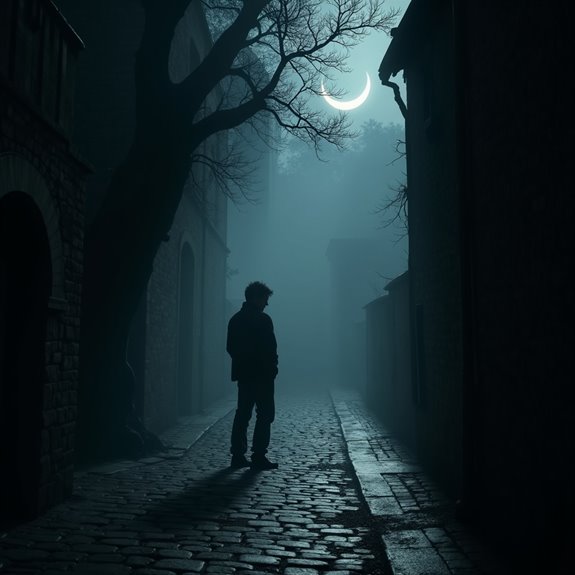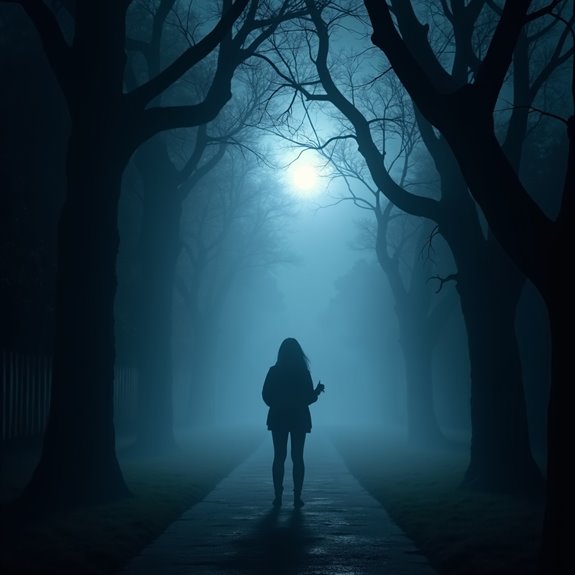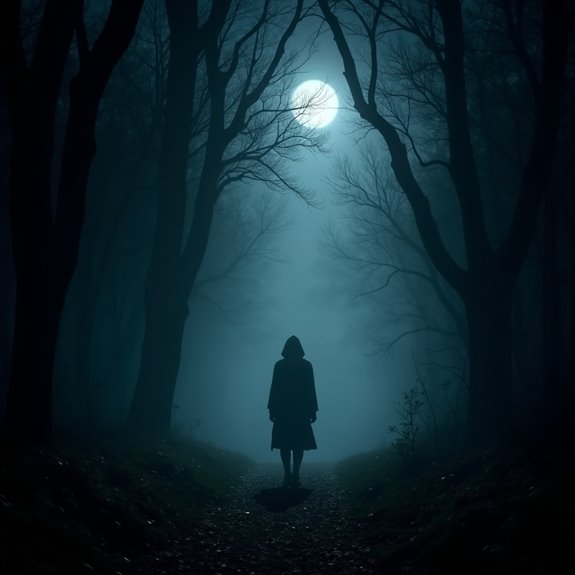Why Do So Many Cultures Fear Whistling at Night?
Across various cultures, whistling at night stirs a palpable fear rooted in deep-seated superstitions. Many believe such sounds invite malevolent spirits or bad fortune during the sacred hours when the boundary between the living and the supernatural blurs. Tales of eerie encounters reinforce this caution, highlighting the potential dangers lurking in the shadows. But what lies behind these age-old beliefs, and how have they endured through generations?
Introduction

Whistling at night might seem innocuous to some, but many cultures harbor deep-seated fears surrounding the act. Across various societies, the sound of a whistle in the darkness evokes a sense of unease and suspicion. Some believe it invites misfortune or stirs malevolent spirits. In many traditions, nighttime is sacred, a time when the veil between the living and the supernatural thins. Whistling, often associated with playfulness during daylight, takes on a sinister tone after sunset. It disrupts the tranquility of the night and signals an unwelcome presence. These beliefs aren’t merely superstition; they reflect the cultural significance and complexities associated with night sounds. Understanding these fears provides insight into the intricacies of human beliefs and communal values.
Cultural Superstitions About Night Sounds

Many cultures associate specific sounds at night with superstitions that reflect their beliefs about the supernatural. For instance, the sound of owls hooting is often seen as an omen of death in various communities. Similarly, the rustling of leaves or whispering winds might signal the presence of spirits or otherworldly beings. In some cultures, laughing at night is thought to attract unwanted attention from malevolent forces. These beliefs create a collective wariness, making people mindful of the sounds they emit or encounter after dark. Consequently, whistling, deemed a provocation of the supernatural, becomes particularly feared. Such superstitions highlight humanity’s enduring attempt to explain and cope with the mysteries of the night.
Notable Cases or Sightings

Across various cultures, numerous accounts illustrate the eerie consequences of whistling at night. In a small village in the Philippines, a local man whistled while returning home, only to find himself face-to-face with a dark figure that whispered his name. In Mexico, a woman’s late-night whistle summoned a pack of mysterious dogs, which chased her until she reached safety. Similarly, in Eastern Europe, an old tale warns that whistling invites spirits, and one traveler reported unsettling dreams after carelessly doing so. These experiences highlight a universal belief that whistling in the dark attracts unwanted attention, often leading to frightening encounters. Such stories serve as cautionary tales, reinforcing cultural norms surrounding nighttime behavior.
Common Theories or Explanations
Although the specific reasons for fearing whistling at night may vary by culture, common theories often revolve around the idea of attracting malevolent spirits or energies. Many believe that whistling invites unwanted supernatural attention, disturbing the peace of the night. In some traditions, it’s thought that whistling can lure evil spirits, bringing misfortune or even illness. Others suggest that it may signal vulnerability, as nighttime is often associated with danger. Additionally, the act of whistling itself can be seen as a disruption of natural order, leading to a sense of unease. These beliefs often reflect a deep-rooted respect for the unknown and an instinctual caution towards activities that could invoke harmful entities or influence the spiritual domain.
Frequently Asked Questions
Are There Any Specific Cultural Rituals to Ward off Nighttime Whistling?
Many cultures perform rituals, like placing salt at doorways or lighting protective candles, to ward off nighttime whistling. They believe these practices shield them from the spirits or dangers associated with such sounds after dark.
How Does Fear of Whistling Vary Across Different Regions?
The fear of whistling varies considerably across regions; in some cultures, it’s believed to summon spirits, while others simply consider it bad luck. These beliefs reflect deep-rooted traditions and local superstitions that shape societal norms.
What Are Some Famous Stories About Whistling at Night?
Many famous stories feature whistling at night, like the eerie tales of ghostly encounters in folklore. In urban legends, whistling often predicts danger or summons the supernatural, creating suspense and engaging listeners with chilling narratives.
Can Whistling at Night Lead to Actual Harm or Danger?
Whistling at night, they believe, can attract unwanted attention or provoke negative spirits. While it might not cause physical harm, the anxiety it raises can lead to risky situations, making caution sensible in certain cultures.
How Do Modern Societies Perceive Whistling at Night Today?
Modern societies often view whistling at night as harmless and playful. However, some still associate it with superstition or potential danger, leading to mixed feelings about the act depending on cultural backgrounds and personal experiences.


